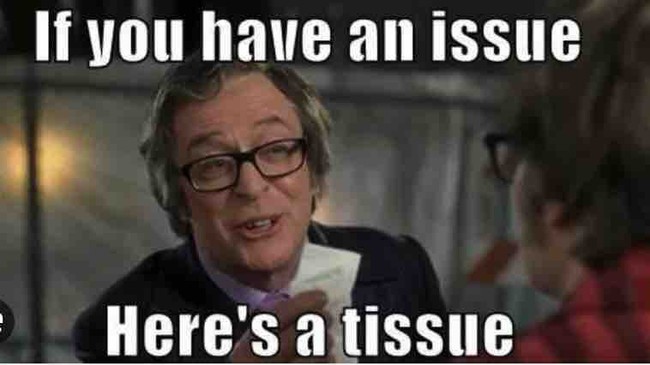ARTICLE AD BOX
Elisabeth Braw is a senior fellow at the Atlantic Council, the author of the award-winning “Goodbye Globalization” and a regular columnist for POLITICO.
What an emotional scene it was when journalist Evan Gershkovich and former Marine Paul Whelan made it to Andrews Air Base in Maryland on that warm Aug. 1 evening. They and 14 other Westerners and Russian dissidents — all traded for Russian citizens serving prison sentences for crimes committed in the West — were free at last.
That’s exactly what makes the largest prisoner exchange since the end of the Cold War very different from the spy swaps of the past. In the prisoner exchanges we’re now seeing, Russian spies and criminals are being traded for ordinary Westerners and Russian dissidents — not their peers. And Russia isn’t the only country dramatically instrumentalizing this.
Whelan was the first to step off the plane, completing the final leg of his journey after five years of detainment in Russia. U.S. President Joe Biden was there to greet him, as was Vice President Kamala Harris. Then came Gershkovich, the Wall Street Journal reporter who spent one-and-a-half years in Russian detainment, followed by Russian journalist and naturalized U.S. citizen Alsu Kurmasheva. Unlike Whelan and Gershkovich, Kurmasheva hadn’t been convicted of espionage — she’d been convicted of discrediting the Russian armed forces.
The other 13 released prisoners, who were all flown to Germany, made for a similarly eclectic group: There were Russian opposition politicians and activists like Vladimir Kara-Murza and Ilya Yashin. There were a couple Germans, one of whom had been sentenced to death in Belarus. And there was human-rights defender and Nobel laureate Oleg Orlov, who had been sentenced to prison for speaking out against the war in Ukraine.
Meanwhile, the eight Russians released in the swap are far more “traditional” exchangees — and yes, we need to use this word. There was Vadim Krasikov, a Russian security service officer convicted of the murder of a Chechen anti-Russian fighter in Germany, and Mikhail Mikushin, who infiltrated a Norwegian university posing as a Brazilian expert in new national security threats. In addition to the spies, there were also a few hackers and financial criminals, some with links to the Russian government.
It’s an unmistakable picture: The prisoners the Kremlin got released were spies and individuals involved in crime on behalf of Russia. The prisoners Western governments got released were individuals who had seemingly been arbitrarily detained, plus a number of Russian dissidents. A recent similar swap involved U.S. basketball player Brittney Griner, who was exchanged for “Merchant of Death” Viktor Bout.
Indeed, today’s prisoner exchanges between Russia and the West — and China and the West, and Iran and the West — are nothing like the espionage swaps of the Cold War. In 1962, for example, U.S. pilot Gary Powers, who had been shot down while conducting reconnaissance over the Soviet Union, was exchanged for Rudolf Abel, a Soviet spy arrested and convicted in the U.S.
 U.S. President Joe Biden was there to greet him, as was Vice President Kamala Harris. | Roberto Schmidt/Getty Images
U.S. President Joe Biden was there to greet him, as was Vice President Kamala Harris. | Roberto Schmidt/Getty ImagesEven as late as 2010, 10 Russian “sleepers” arrested in the U.S. — including the instantly famous Anna Chapman — were exchanged for four individuals imprisoned in Russia for espionage on behalf of the West. Although the espionage allegations were exaggerated in at least one of these cases, some of the four — including former double agent Sergei Skripal — had indisputably worked for the West.
Today, by contrast, we have sundry Westerners and Russians being picked up by the Russian authorities simply to be used as exchange fodder. China has also acted similarly and so has Iran, and none of these governments seem bothered by the fact that most of their accusations of espionage get little credence. What they need are people they can trade for their own nationals convicted in the West, and it’s this lack of shame that makes them different from the Soviet Union.
To be sure, the Soviet leadership was brutal and systematically violated human rights long after the death of Stalin. But on the global stage, the Politburo wanted to be seen as respectable. Western journalists didn’t get to see much, but they also didn’t face the constant risk of being given bogus prison sentences.
Today, Russia, China and Iran need people to exchange against their own operatives. They need them because Western authorities are unmasking more of their growing cadres of spies. This is one of the ways in which the world’s intensifying geopolitical standoff is playing out. And because countries like Russia and China take pride in not leaving operatives behind, they’ll do their best to get an exchange. If such efforts include arresting Western journalists and local dissidents, then so be it.
But what this means is that no Westerner is truly safe in hostile countries anymore. To be sure, many still visit these countries, or even live there, and nothing happens — but that’s hardly a guarantee. And for Western governments, the price of getting their citizens out is extremely high. Finding and arresting Bout had taken U.S. and allied authorities years of dangerous and complex investigations.
Gershkovich was doing valuable work in Russia. But those of us with less valid reasons to visit hostile countries should simply stay home. And a new dilemma now faces Western news organizations too: Given their obligations to duty of care and national security, is it still ethical to send correspondents to Russia and China?
.png)
 1 year ago
13
1 year ago
13








 English (US)
English (US)